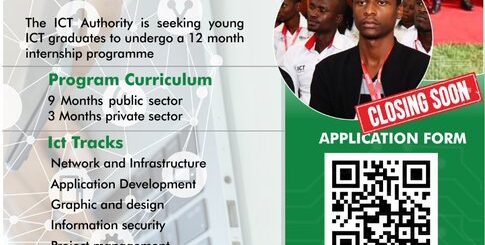Request for Proposal (RFP) – Feed the Future East Africa Market System Activity Baseline Survey
Overview
Purpose
The overall purpose of this is assignment is to complete a baseline indicator study for the USAID-funded Feed the Future East Africa Market Systems activity (“the Activity”). The study will use of use quantitative and qualitative data from primary sources in the countries where the activities are being implemented to establish baseline data for the following indicators:
- Average time to trade goods along selected trade corridors receiving USG assistance
- Cost to trade goods along selected trade corridors receiving USG assistance
Results from this study will be used as a benchmark against which changes, and progress of achievements can be measured and evaluated using verifiable indicators identified during the design phase.
Type of Contract: Firm Fixed Price
Anticipated Contract Term
The contract term will be 6 weeks following award, from November to mid-December 2021.
Company Information
Palladium is a global leader in the design, development and delivery of Positive Impact — the intentional creation of enduring social and economic value. We work with corporations, governments, foundations, investors, communities and civil society to formulate strategies and implement solutions that generate lasting social, environmental and financial benefits.
Project
The Feed the Future East Africa Market Systems Activity (“the Activity”) is a five-year project designed to strengthen regional resilience in East Africa by increasing cross-border trade in select value chains (VCs) and enhancing regional integration to overcome barriers to trade, ultimately strengthening the system to absorb, adapt, recover and transform in times of shocks and stresses. EAMS will collaborate closely with USAID/KEA’s regional intergovernmental partners, including the East African Community (EAC), the Intergovernmental Authority on Development (IGAD), and the Common Market for Eastern and Southern Africa (COMESA). It will focus on the East African countries of Kenya, Tanzania, Uganda, Rwanda, Burundi, Ethiopia, Somalia, South Sudan, and Zambia – all of whom are a member of at least one of the regional economic communities (RECs).
The Activity will achieve and measure impact on regional resilience under four objective areas: 1) Strengthening cross-border agricultural market systems, 2) Accessing and scaling technologies, 3) Strengthening regional resilience, and 4) Strengthening the regional agriculture policy and regulatory environment. Through the creation and deepening of key private sector alliances and regional partnerships, EAMS will support USAID/KEA’s intentional transition to market-based approaches and private sector engagement to drive regional progress toward resilience and self-reliance in East Africa.
Timeline: Issuance of RFP: 21 Sep 2021
Scope of Work and Standards
Background
Opportunities abound for the growing and dynamic economies of East Africa (EA). Investment and trade are
expanding, the youthful and entrepreneurial population has the potential to drive growth and transformation, and its improving agricultural productivity and commitment to regional integration are critical to propel the region on its journey to self-reliance. The African Continental Free Trade Agreement (AfCFTA), signed by 44 African countries, continues to make considerable progress with the help of the East African Community (EAC) in building and strengthening its institutions, including building “one-stop” border posts designed to link EAC members more deeply and expedite customs clearance.
Despite the region’s economic expansion and dynamism, the region has the lowest intraregional trade in the world (intra-EAC trade represents only 19 percent of total trade for the EAC countries and 8 percent for COMESA), failing to take advantage of the benefits of scale that could maximize competitiveness and profitability for these relatively small economies. Notwithstanding public commitments to regional integration, member states continue to enact protectionist policies (especially in staple foods) that undermine incentives for the private sector to engage in cross-border trade and exacerbate food insecurity. Overall, the level of implementation and enforcement of regional trade agreements is low, and recent trade tensions between member states (e.g., Rwanda and Uganda) have created challenges to freer trade flows.
Overall Objectives
The specific objectives of the baseline survey are:
- To obtain quantitative and qualitative data on the impact, outcome, and output indicators of interest prior to inception of the Activity implementation. Data generated will serve as benchmark information for evaluating performance in relation to the stipulated goals, objectives, outcomes, and outputs.
- To provide information for monitoring purposes and inform program management to make implementation decisions that are appropriate to the actual situation on the ground.
- To provide information to enable the Activity to develop capacity building interventions for target stakeholders.
- Assess cross-cutting issues such as incorporating gender and youth, and provide recommendations to ensure mitigation of any potential negative effects of the Activity
Specific tasks
Offeror’s proposals should include a proposal with a detailed methodology and include a description of data triangulation to verify findings. This is to enable the use of same methodology and approach during subsequent evaluations. It will also facilitate comparison of values on impacts, outcomes, and outputs in subsequent evaluations with baseline figures.
The proposed baseline approach should include, but is not limited to, the following specific tasks:
- Work closely with the Monitoring, Evaluation and Learning (MEL) Team, supervised by the Deputy Chief of Party
- Conduct reviews of the Activity project documents (project document, project level starts up reports, assessment, annual work plan, and Activity Monitoring, Evaluation, and Learning Plan)
- Undertake random sampling to constitute a study sample for the survey
- Design the survey methodology and develop comprehensive tools for the data collection. The survey instrument should be able to capture:
- Status of key highlighted project indicators
- Subsidiary variables used to compute the indicators
- Gender, youth, and environmental aspects
- Identify and train survey supervisors and enumerators to ensure that standardized methodology and application of the survey instruments are fully understood:
- Guide supervision of field data collection and data cleaning
- Coordination with Activity team and stakeholders
- Analyze and synthesize data; and prepare a report. The steps below should be followed:
- Data cleaning, data analysis and compilation of a comprehensive survey report
- Preparation of initial report
- Fill in Baseline values in the Activity indicator Matrix
- Presentation of preliminary findings
- Revision of the report as per feedback
- Final report preparation and submission
Successful proposals will demonstrate the Offeror’s proven experience in monitoring and evaluation and research work in the development context.
Key Personnel
Offerors should propose key personnel who will work under this contract. Proposed key personnel must include a team leader who should, at a minimum, hold a master’s degree or equivalent in research with relevant experience in baseline surveys in trade in the region.
Time frame and proposed level of effort
The assignment is expected to take approximately 7 weeks to complete. Offers should propose the minimum level of effort required to complete the expected deliverables within this timeframe.
Deliverables
The expected deliverables are as follows:
Deliverable 1: Survey protocol/Inception report including field schedule developed and submitted for approval. (To be submitted 1 week after contract signing)
Deliverable 2: Draft Survey tools (questionnaires and analytical tools) submitted for approval. (To be submitted 1.5 weeks after contract signing)
Deliverable 3: Training enumerators on tool, pilot testing of the tool and refining the final tool. (The task to be completed and report submitted 2.5 weeks after contract signing)
Deliverable 4: Completion of fieldwork, data analysis and submission of draft report, raw and clean data, and transcripts. (The task to be completed 5 weeks after signing the contract)
Deliverable 5: Final baseline report in MS word incorporating recommendations made by both Palladium and USAID. The report should detail the status of program indicators, subsidiary variables, stakeholders’ characteristics, gender, and youth interactions. The report shall include high quality pictures of data collection activities (survey, interviews, and focus group discussions. Final version of quantitative data set in agreed upon format and qualitative transcripts. (Final report and other deliverables to be submitted 8 weeks after contract signing)
The expected deliverables will be inserted into the final contract as part of the deliverable and payment schedule.
Eligibility restrictions and required qualifications
Offerors must be legally authorized to conduct business in at least on of the countries in which the Activity operates and must not be on a list of organizations/parties banned or de-barred by the U.S. Government.
The authorized geographic location of vendors for this RFP is any country excluding those that are prohibited
sources as defined by the United States federal government.
For full RFP document: https://thepalladiumgroup.com/tender/Feed-the-Future-East-Africa-Market-System-Activity-Baseline-Survey








